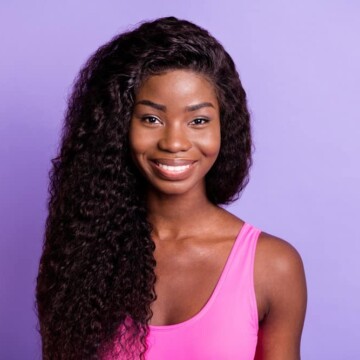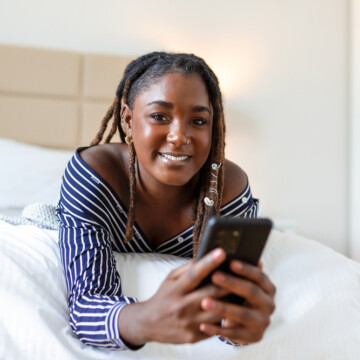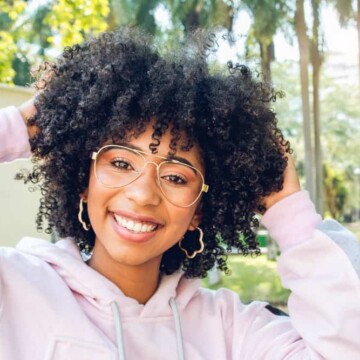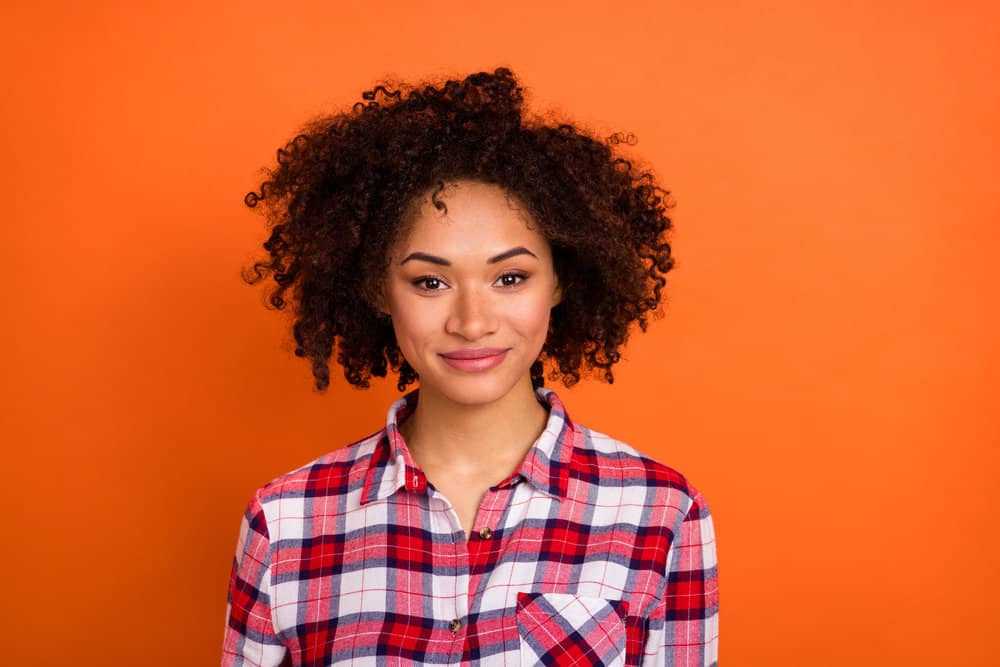
Have you noticed that your hair is getting darker even though you didn’t color it? Well, we’re here to tell you that it’s not in your head.
There are a variety of reasons why your hair might be getting darker. This article will look at some of the potential causes behind darkening strands and give you tips on how to reverse them. Let’s get started!
Table of Contents
Why Is My Hair Getting Darker?
Your hair is mostly getting darker due to aging, medications, medical conditions, or environmental factors. Darkening strands may be natural or a sign that you need to seek medical or professional attention.
Here are four reasons why your natural hair color is becoming darker. Use the information in this section to narrow down the reason for your color changes, and later in the article, we’ll tell you how to address them.
Key Takeaways
- Aging and Melanin Changes: As people age, the types and amounts of melanin (eumelanin and pheomelanin) in the hair change, often leading to darker hair shades. This natural process is influenced by genetics and can shift your hair color from light to darker tones over time.
- Medication and Medical Conditions: Certain medications and medical conditions can dramatically alter your hair color, texture, and density. Conditions like thyroid disease or hormonal changes during pregnancy may result in darker hair. Consulting a medical professional is advised to understand these changes.
- Environmental Factors: Seasonal changes, notably less sunlight exposure in colder months, can cause hair to revert to its naturally darker shade. This is a common reason for noticing darker hair without any artificial coloring.
- Natural Lightening Methods: For ladies seeking to lighten their hair, you can use DIY methods like beer rinses, chamomile tea, lemon juice, and saltwater sprays. These natural treatments, often combined with sun exposure, can subtly change hair color but require consistent application and may lead to dry hair.
- Permanent Changes with Hair Dye: Using bleach or permanent hair dye is effective for a more significant color change. While providing a noticeable difference, these methods can affect the hair shaft and cuticle, potentially leading to dryness or damage, thus requiring nourishing treatments like leave-in conditioners.
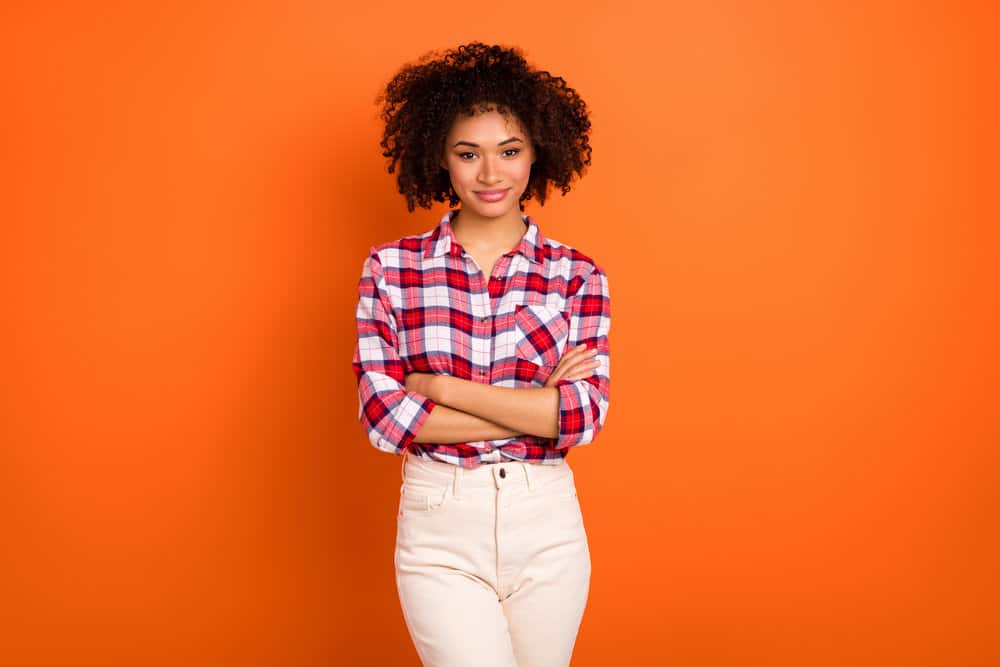
Aging
Even though aging is usually associated with going gray, it can also cause your strands to grow darker over time. As you may know, babies born with light hair (e.g., light blonde hair) or eyes often have their features darken with age.
Similarly, you may notice your light hair becoming darker as you grow older. As you age, the amounts and types of melanin produced by your body undergo changes.
Two types of melanin determine the shade of your hair. Eumelanin is responsible for black and brown hair, while pheomelanin creates red and blonde shades.
The genes that influence melanin production turn on or off at various times in your life, resulting in changes to your natural hair color.
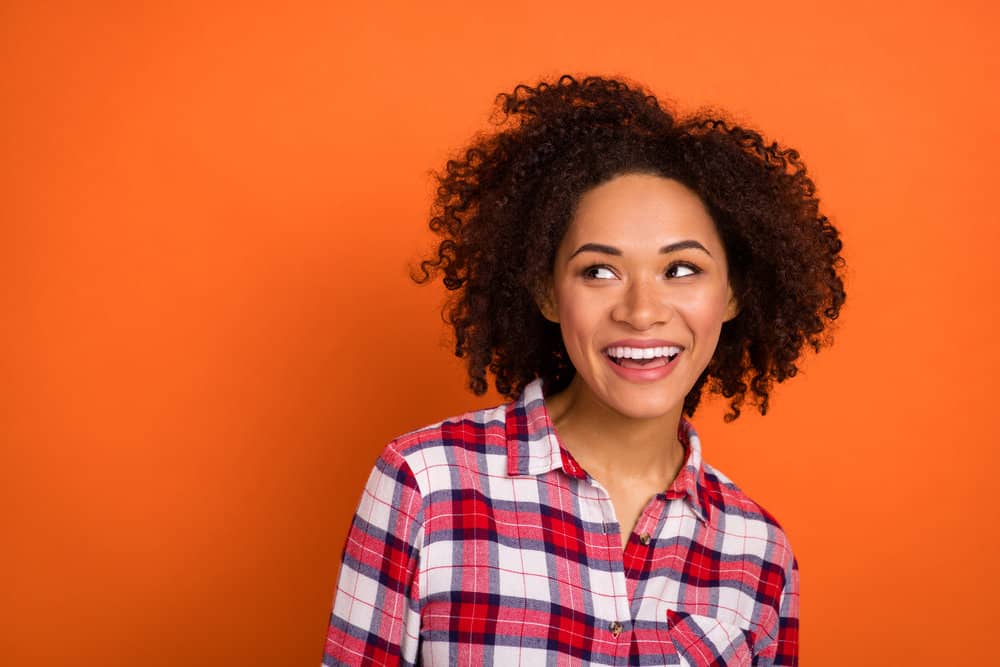
Medications
Although it’s not common, studies show that some medications and drug treatments can cause dramatic changes in your natural hair color. They can affect your hair’s thickness, growth, density, color, and texture.
If you’ve recently started a new medication, it might be behind your darkening strands. Bring up this concern to your doctor to see if it could be the culprit.
Medical Conditions
Medical conditions or illnesses can cause significant changes in the color and appearance of your strands. Some medical conditions, like pregnancy or thyroid disease, create hormonal changes that can cause your strands to become darker or lighter.
When in doubt, speak with a medical professional to determine the source of your change in hair color. For most people, the color changes resolve after seeking treatment.
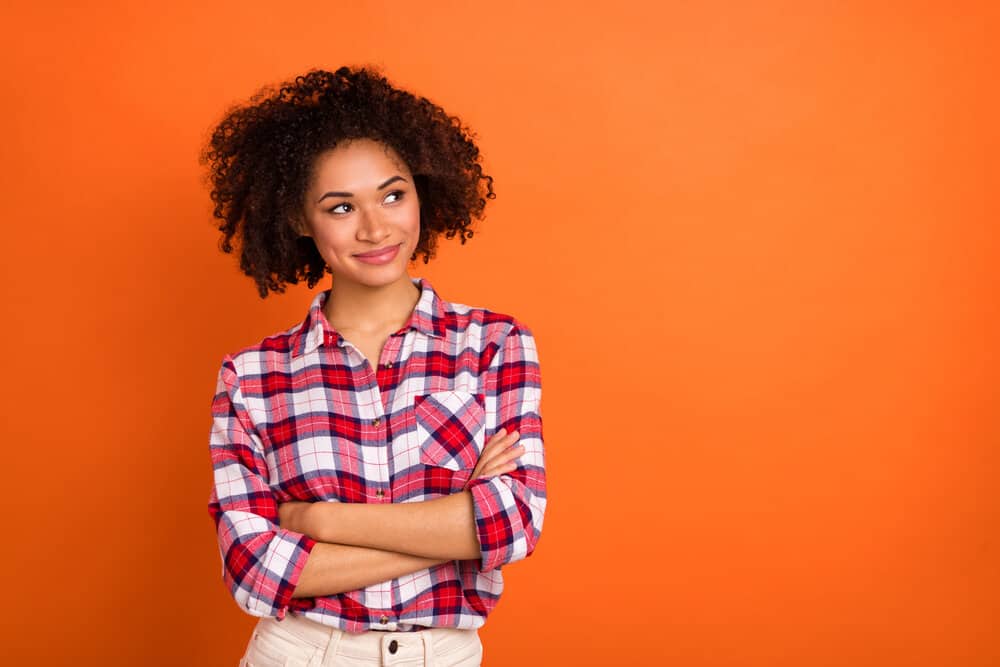
The Environment
The bright summer sun is well known for its lightening effects. Just like your strands get lighter during the summer months, you may notice that they become progressively darker during the fall and winter.
We tend to spend less time outdoors during the cooler seasons, which causes our hair to revert to its naturally darker shade.
How to Stop Hair from Getting Darker
The method you should use to stop your hair from getting darker depends on what’s causing it to change in the first place. If your hair is getting darker due to lifestyle or medical reasons, addressing the underlying cause should help your color return to normal.
Unfortunately, there’s no way to naturally stop your hair from getting darker if it is due to genetics or aging. You can, however, alter your natural shade with hair dye or bleach.
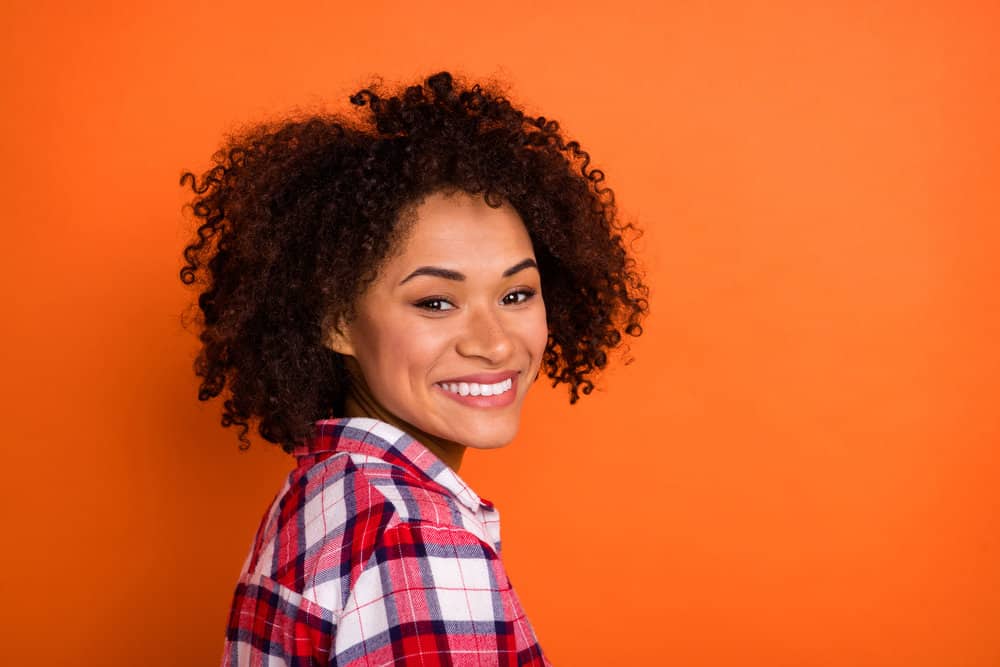
Ways to Lighten Up Dark Hair
Whether you want to go dramatically lighter or simply lighten your strands by a level or two, the following section is for you. Here are some of the easiest and most effective ways to lighten dark hair.
Note: Lightening your hair involves destroying your natural pigments, so make sure you apply a deep conditioner after every treatment.
Make a Beer Rinse
Got a spare case of beer in the fridge? Lucky for you, beer’s slightly acidic nature makes it an effective hair lightener.
In addition to its lightening abilities, beer is incredibly rich in minerals and vitamins that promote healthy hair. To make a beer rinse, pour two or three bottles of beer into a container, and let them sit out for a few hours.
Once they’ve lost their carbonation, shampoo your locks as usual. After your hair is squeaky clean, pour the beer onto your strands and sit out in the sun for up to half an hour.
Rinse the beer from your hair and use your preferred conditioner. Repeat this treatment once or twice a month until you’ve reached your desired shade.
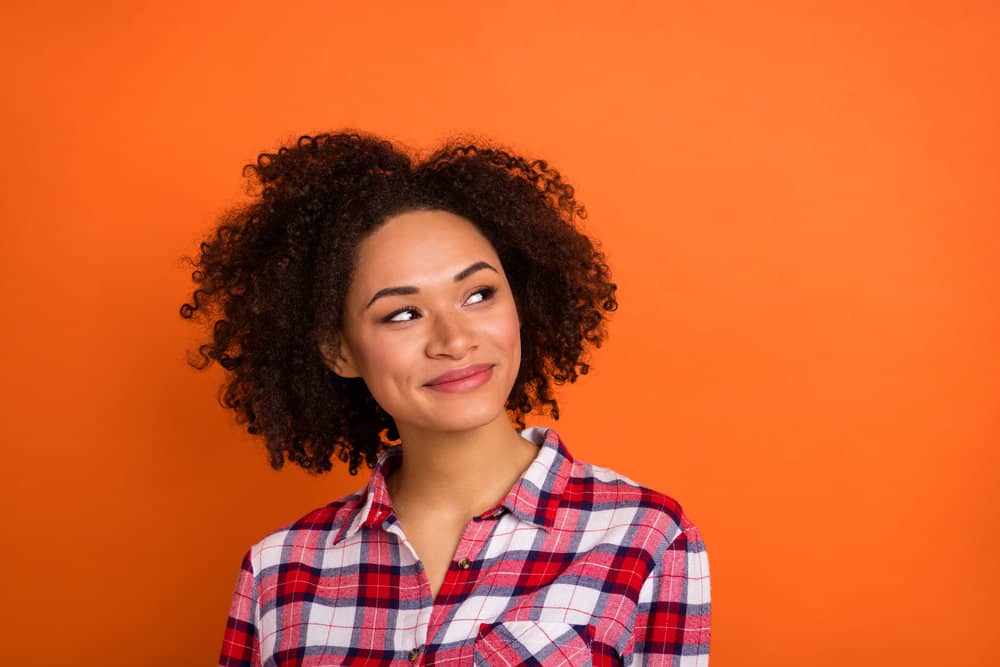
Try a Chamomile Tea Rinse
Although it's best known as a sleeping aid, chamomile tea can be used to subtly lighten darker locks. Chamomile contains flavonoids that work together to brighten and lighten your strands and leave your hair with a rich glow.
However, it doesn’t work overnight, so this treatment is best suited for people who only want to go slightly lighter or don’t mind waiting to see results.
To make the rinse:
- Use five to seven tea bags to brew a strong batch of chamomile tea.
- Stir in one or two teaspoons of honey and let the tea drop to a comfortable temperature.
- Saturate your strands with the tea and let them soak for 30 to 45 minutes.
- Rinse well with warm water.
Note: To amp up the lightning effects, sit in the sun while you let the tea soak into your strands.
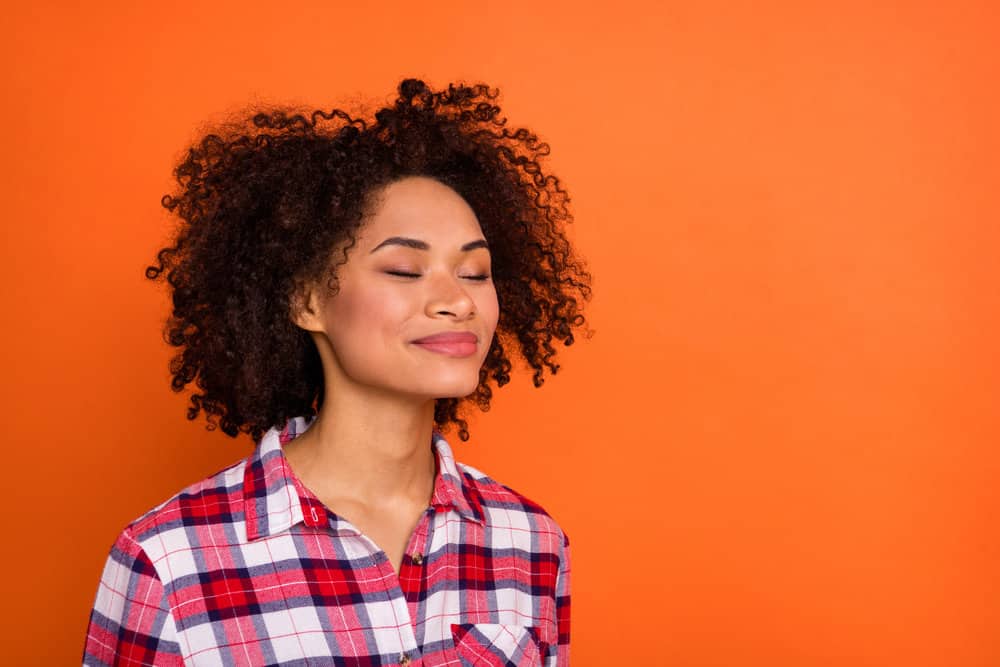
Coat Your Strands in Lemon Juice
Lemon juice is another excellent way to lighten your strands naturally. Lemons are rich in citric acid, which, when exposed to sunlight, has a bleaching effect that will leave you with noticeably lighter hair.
You can use this method as often as once or twice a week, as long as your hair is healthy enough to withstand it. In addition to lightening, lemon juice can balance an oily scalp and ease symptoms of dandruff.
All you have to do is:
- Combine the juice of a lemon with half a cup of water and two tablespoons of your favorite oil or conditioner. Lemon juice is highly acidic, so diluting it will help prevent burns and dryness.
- Mix well and pour the mixture onto your locks.
- Sit out in the sun for 30 minutes to an hour.
- Rinse your hair thoroughly.
Make a Saltwater Spray
Have you ever spent the day at the beach only to find that you’re left with natural highlights? If so, you’ve already seen this DIY lightening treatment at work.
Saltwater lightens your hair by lifting the outermost layer of your strands. That helps sunlight penetrate your hair and bleach it from the inside out.
To recreate this effect without taking a dip in the ocean:
- Dissolve a tablespoon of sea salt into half a cup of warm water.
- Saturate your hair with the mixture.
- Sit outside in the sun for ten to twenty minutes. You can sit outside for up to an hour if you’re after a more dramatic lightening effect.
- After your time is up, rinse your hair thoroughly with fresh water.
- Wash your hair with a hydrating shampoo and deep conditioner.
Repeat the process once a week, and you’ll see lighter locks in no time!
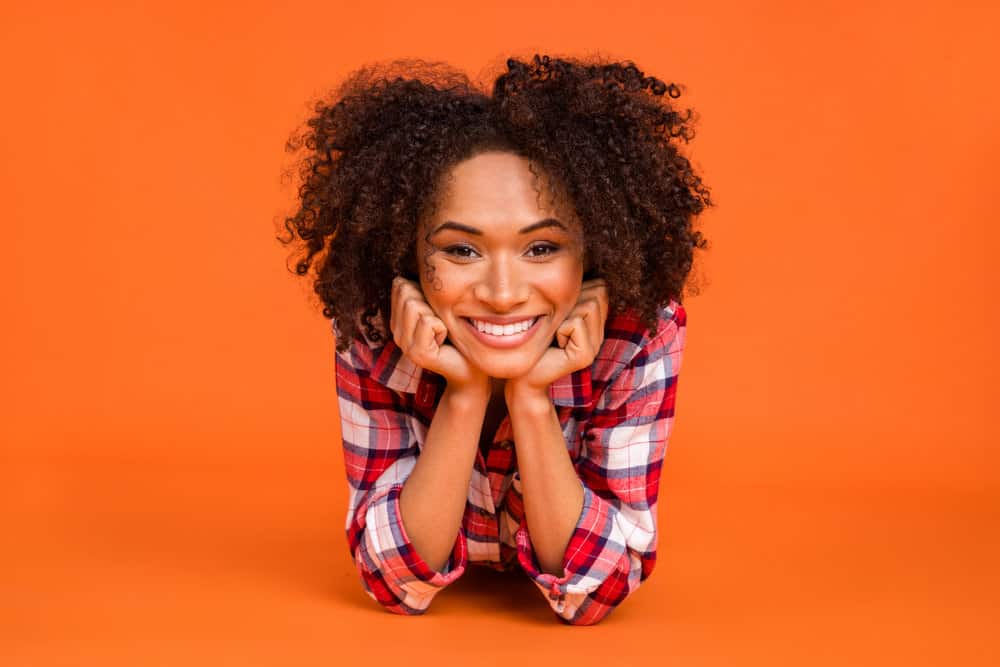
Bleach or Color Your Hair
Bleach is unmatched in its ability to lighten even the darkest hair. It reacts with the melanin that gives your hair its color and eliminates it permanently.
It can be incredibly harsh, so opt for a more gentle bleach bath or visit a professional stylist if you’re concerned about damage. For a more subtle change, a permanent dye is all you need.
- Is Sun Bum Hair Lightener Bad for Hair?
- How to Lighten Your Hair Without Bleach
- Can You Lighten Hair With Just Developer?
- Stages of Bleaching Dark Hair
While darkening strands can result from a variety of factors, there are many ways to reverse "hair color change". We hope this article has shed some light on why your hair is getting darker and given you everything you need to correct it.
Remember, even natural methods of lightening your hair can cause dryness, so make sure you always follow up with plenty of moisture and TLC.

